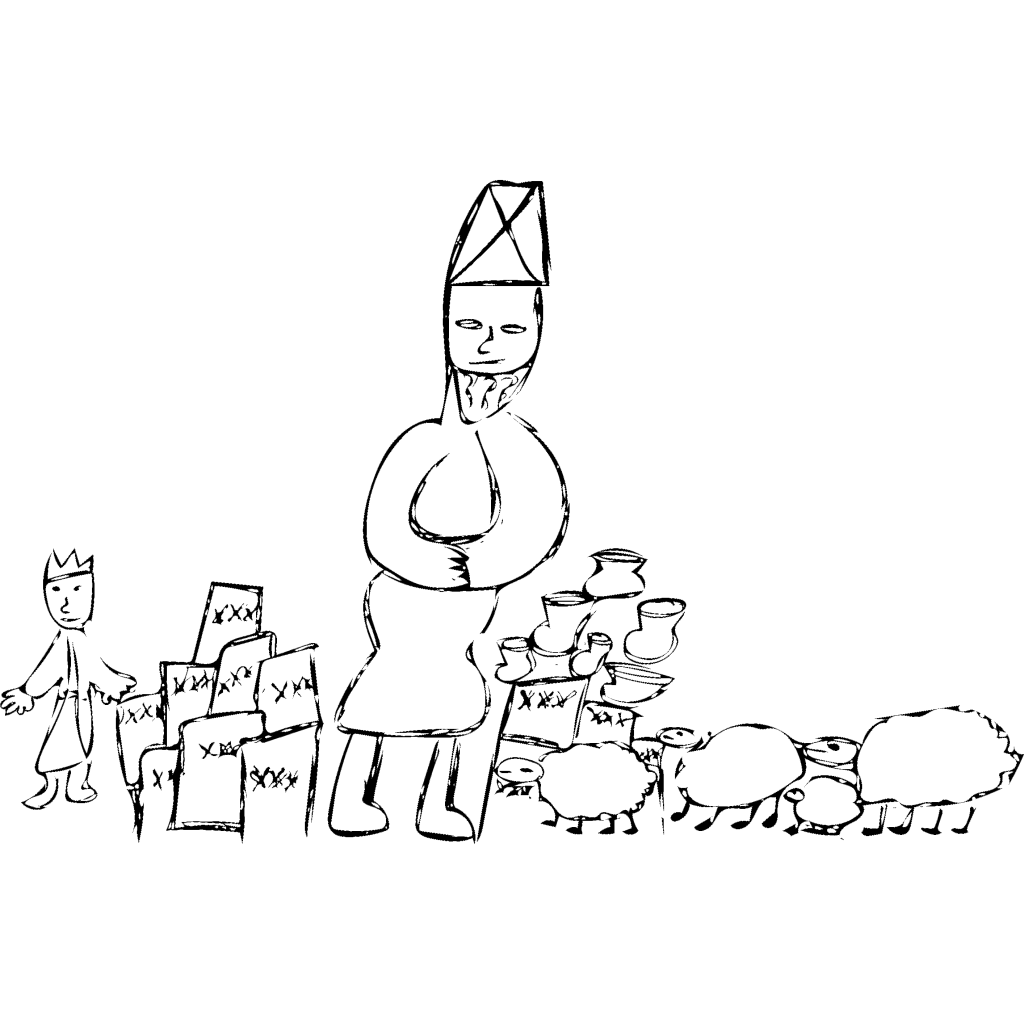Series Introduction
I’m facilitating an online Koine Greek reading group and we’re working through the short and apocryphal book of Bel and the Dragon. The text we’re using is the Old Greek (OG) version from Henry Barclay Swete’s 1909 edition of The Old Testament in Greek: According to the Septuagint. I will be posting the text here each week with accompanying vocabulary glosses for words that appear fewer than fifty times in the Greek New Testament. I will also try to throw in some brief commentary and illustrations.

Bel and the Dragon 3–4a
3 καὶ ἦν εἴδωλον, Βήλ, ὃ ἐσέβοντο οἱ Βαβυλώνιοι· ἀνηλίσκετο δὲ αὐτῷ καθʼ ἑκάστην ἡμέραν σεμιδάλεως ἀρτάβαι δέκα δύο καὶ πρόβατα τέσσαρα καὶ ἐλαίου μετρηταὶ ἕξ.
4a καὶ ὁ βασιλεὺς ἐσέβετο αὐτόν, καὶ ἐπορεύετο ὁ βασιλεὺς καθʼ ἑκάστην ἡμέραν καὶ προσεκύνει αὐτῷ,
Verse 3
ἀναλίσκω, to consume
ἀρτάβη, a dry measure of capacity
Βαβυλωνίος, Babylonian
Βήλ, Bel
δέκα, ten
εἴδωλον, idol
ἔλαιον, olive oil
ἕξ, six
μετρητής, liquid measure of about 40 liters
πρόβατον, sheep
σέβω, to worship
σεμίδαλις, flour of the best quality
τέσσαρες, four
Verse 4
σέβω, to worship
Translation and Commentary
3 And there was an idol, Bel, which the Babylonians were worshipping. And each day twelve artabas of the best flour, four sheep, and six measures of oil were being consumed by it.
4a And the king was worshipping him. And the king was going every day and bowing down to it.
The most notable grammatical trend in these verses is the abundance of the imperfect tense-form. In narrative, imperfect verbs often serve to provide background information (Mathewson and Emig, 278). The information in these verses in background information for what’s to come.
Bel is a title, not a proper name. It means “lord” or “master” and refers to Marduk, the chief deity of Babylon (LBD, “”Bel”). Sources differ on the size of an artaba, a dry measure of capacity used in Egypt and Persia. According to LSJ, it could vary somewhere between 6 to 10 ½ gallons (LSJ, ἀρτάβη; cf. χοίνικες). The measure used for the oil equals approximately 9 gallons (LSJ and BDAG, μετρητής).
Want to read more? Continue to Bel and the Dragon Part 3
For more resources on Bel and the Dragon try the following:
Bel and the Dragon in A New English Translation of the Septuagint
An Introduction to the Apocrypha by Bruce M. Metzger
Daniel, Esther, and Jeremiah: The Additions by Carey A. Moore
Daniel: A Commentary on the Book of Daniel by John J. Collins
0 Comments